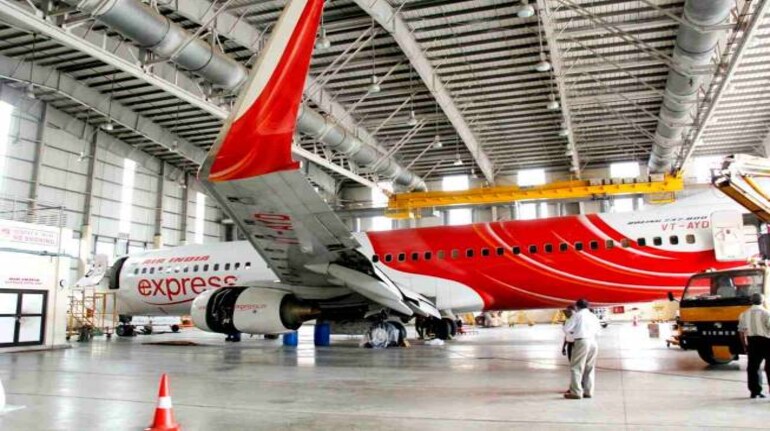Ravi Menon of Air Works, the largest independent MRO player in the country, said the segment is finally getting its due.
Finance Minister Nirmala Sitharaman's three-point measure for the aviation sector, as part of the government's financial package to stimulate the economy, may have failed to cheer the industry. But it has managed to put the spotlight on the otherwise neglected segment - maintenance, repair and overhaul, or MRO.
Talking about the steps taken by the government to boost the segment, Sitharaman said the tax regime for the MROs has been rationalised, which will help make India a hub for aircraft maintenance.
While the government had already announced the measure in March - the GST Council had reduced the GST on aircraft Maintenance, Repair and Overhaul (MRO) services from 18 per cent to 5 per cent - the FM's reiteration has brought some cheer to the players.
"We are happy that the MRO segment is getting recognition," said Ravi Menon, Executive Director, Air Works India (Engineering) Private Limited.
Air Works claims to be the largest 'independent' MRO provider in the country.
"With the emphasis on self-sufficiency (Prime Minister Narendra Modi has called the package 'Atmanirbhar Bharat'), it's a positive thing that the Finance Minister of the country sees and believes that MRO is an imperative, and not an option, for the aviation industry," Menon told Moneycontrol.
It is a welcome statement because despite India's aviation sector being the fastest growing in the world, and domestic airlines expanding fleet at a furious pace, the MRO segment struggled to grow.
Also Read | Indian aviation missed a 1991 moment
Just about 10 percent of the maintenance, repair and overhaul of aircraft are done in India. The rest is sent overseas. Little wonder that Air Works chose to expand overseas, before refocusing its resources on India, and the South Asian region.
The main reason for business flying overseas, was a tax structure that made it cheaper for airlines to send their aircraft, or parts, overseas for maintenance or repair. MROs in the Middle-East, Europe, and even Sri Lanka, grew at the expense of the Indian industry.
While the reduction in GST in MRO services will help, taxes remain high on import of parts or tools.
This is aptly explained in a paper published in India Foundation Journal. Written by Group Captain Rajiv Kumar Narang, an officer with Indian Air Force, it says:
"The GST on import of tools and test-benches is 18 per cent against a GST of 5 per cent on aircraft components, which further discourages setting up of testing and MRO facilities in India."
Menon agrees. He points out that at present, MRO in India is mostly limited to airframes. But when it comes to bigger components, airlines prefer to send these overseas. "Right now, we are targeting only 26 percent of the market. And even if we don't consider engines, there are still many low-hanging fruits that can be taken," he said.
Menon added that for every million dollar invested in MRO, 50 skilled workers are employed. And this doesn't include technicians and other personnel.
"The dependence on overseas market is especially telling in a COVID-19 like situation. With no flights to take aircraft or component overseas, work has come to a standstill," said Menon.
COVID-19 impact
The disruption caused by COVID-19, and the national lockdown, has grounded the industry in the last couple of months. That also includes the MRO segment.
The situation, points out Menon, has been grim since January. "There has been no business. And the dues to be paid by the airlines are rising," said Menon.
Air Works, which recently appointed former Puducherry Governor Lt Gen AK Singh as an independent director, works across 27 locations in India.
An industry official added that none of the airlines now clears dues in 30 days. "If your dues get cleared in 60 days, then you are very lucky. If it is 90 days, it means you have a good horoscope. And 120 days... fingers crossed!" the official said.
Follow our full coverage of the coronavirus outbreak here
Moneycontrol Virtual Summit presents 'The Future of Indian Industry', powered by Salesforce. Watch Now!














